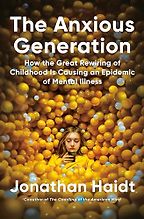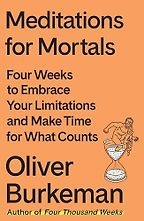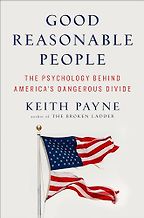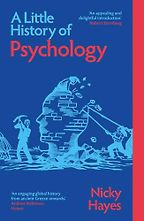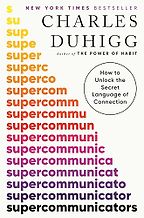What self-help and psychology books have been on your radar in 2024?
It’s a broad field, spanning everything from wellbeing workbooks to dense theoretical texts. So, forgive me, this will be a very partial list. But I’ve picked out five new books, published in 2024, that deal with some question of psychology, mental health, and personal development.
Shall we start with books by former Five Books interviewees? I think there are at least a couple that you wanted to flag up.
That’s right. Happiness expert and social psychologist Jonathan Haidt (The Coddling of the American Mind, The Happiness Hypothesis) has a new book out, The Anxious Generation, which has been a huge hit in the United States, sitting on the bestseller lists for weeks. In it, he argues that the age of the smartphone has royally messed up our adolescents. “Continuous access to social media, online video games, and other internet-based activities” disturbs their sleep, fragments their attention, and acts, effectively, as an addictive substance. He links the rise of social media to a spike in mental illness and anxiety.
Almost everyone I speak to seems to have an opinion on this book; it has clearly hit a nerve. The most creative response, in my opinion, was by Decca Aitkenhead in The Sunday Times Magazine, who recruited her teenage sons and a group of local youths, locked away their phones and sent them on a camping trip completely alone. A perfectly normal activity when I was their age—okay, more than twenty years ago now—but mind-blowing to these teenagers, who are conditioned to being contactable 24/7. The girls had the greatest response, being the ones who feel most under pressure by their peers to be ‘extremely online’ and to abide by a series of complex, unspoken social rules while being so.
Five Books interviews are expensive to produce. If you're enjoying this interview, please support us by donating a small amount.
Next, I want to direct your attention to the new books from four-time(!) Five Books interviewee Oliver Burkeman, whose book Four Thousand Weeks brought me so much reassurance and clarity back in 2021. In that book, he argued that most discussions of time management are based on the flawed premise that, if we just try hard enough and are more organised, we could get everything done. Burkeman told us to face up to our own finitude and accept that you can only do a tiny proportion of all possible tasks. Plan accordingly.
This new book, Meditation for Mortals, again asks us to—respectfully—get a grip, to accept where we are in our lives rather than living in a fantasy land, and to understand that there will never be a golden day when we finally ‘get on top of things’ and live correctly. He calls on us to reflect on ‘the liberation of defeat’ and ‘the futility of becoming a better person.’ If that sounds gloomy, maybe it’s not the right book for you, but if you are anything like me—that is, an all-or-nothing kind of person who strives for perfection and then jacks it all in when they inevitably fall short—then it might just be the book that will change your life. Or (as Burkeman would likely correct me) it could change your day, hopefully the day after that, and maybe every day after that, sequentially, one after another. It’s better, he tells us, not to make grand plans but to make small, ‘daily-ish’ steps towards the person we want to be.
Any other 2024 psychology books that have caught your eye?
Keith Payne’s Good Reasonable People feels very timely: it’s a study of partisanship in contemporary America, from the perspective of a social psychologist from rural, Christian Kentucky whose own family splits along political lines. We have, he argues, “psychological immune systems” that swing into action to neutralise information that threatens our self-identity and beliefs. In this way, we may all believe our tribe to be the good, reasonable people of the title—and those who disagree with us to be reckless fools.
In truth, he contends, most people don’t really abide by a particular ideology. They might hold conservative views on tax but liberal views on public spending; many hold actively contradictory views, or at least logically inconsistent ones. Most questions of belief—political, religious, moral—also come down to circumstance. He cites the example of two German twins, separated at birth: one grew up Christian in the Hitler Youth, the other was raised in a Jewish-American family. In adulthood they attempted to reunite, but could not overcome their differences in worldview, all of which was entirely down to chance.
Next time you jump to debate, says Payne, ask yourself instead: Why do I believe what I think I believe? Why do they? In this way you might be able to walk yourselves backwards to a place of accord. Still, he warns, there’s no easy way out of the political division we find ourselves in.
A Little History of Psychology by Nicky Hayes, president of the British Psychological Society, is the opposite of timely, in as much as it starts in the Classical period—far before the field of psychology was ever thought of as ‘psychology’—and runs right into the present. But we love the ‘Little History‘ series from Yale University Press, and can be sure this will be an evergreen book that will expand your mind and your general knowledge. Hayes steps through various developments in the science, from behaviourism to psychoanalysis, making sure to cover all the key psychological concepts you might meet on a college course as well as bonus extra areas of interest.
And what about 2024 self-help books? I’m in the mood for some personal development.
Then you might be interested in the new book from Charles Duhigg (The Power of Habit), which dissects the skills of what he calls ‘super-communicators’—that is, those socially-gifted conversationalists who can guide an interaction successfully and seamlessly, avoid offence while approaching prickly subject matter, and generally convince others to share your point of view. To this end, there’s some shared territory with Payne’s Good Reasonable People—he delves, for example, into why, for example, unconscious bias training can be counter-productive (those being lectured to, feeling defensive, dig in their heels)—but Duhigg approaches this from the perspective of someone who wishes to influence opinion or turn other unpromising situations to one’s own advantage through the power of sweet talk. His case studies, warns the Wall Street Journal, can read “more like manipulation than communication.” But, argues Duhigg, you don’t need to be cynical: “Conversations can change our brains, bodies, and how we experience the world.” By opening ourselves to dialogue, we open ourselves to more authentic exchange.
November 20, 2024. Updated: January 5, 2025
Five Books aims to keep its book recommendations and interviews up to date. If you are the interviewee and would like to update your choice of books (or even just what you say about them) please email us at [email protected]
